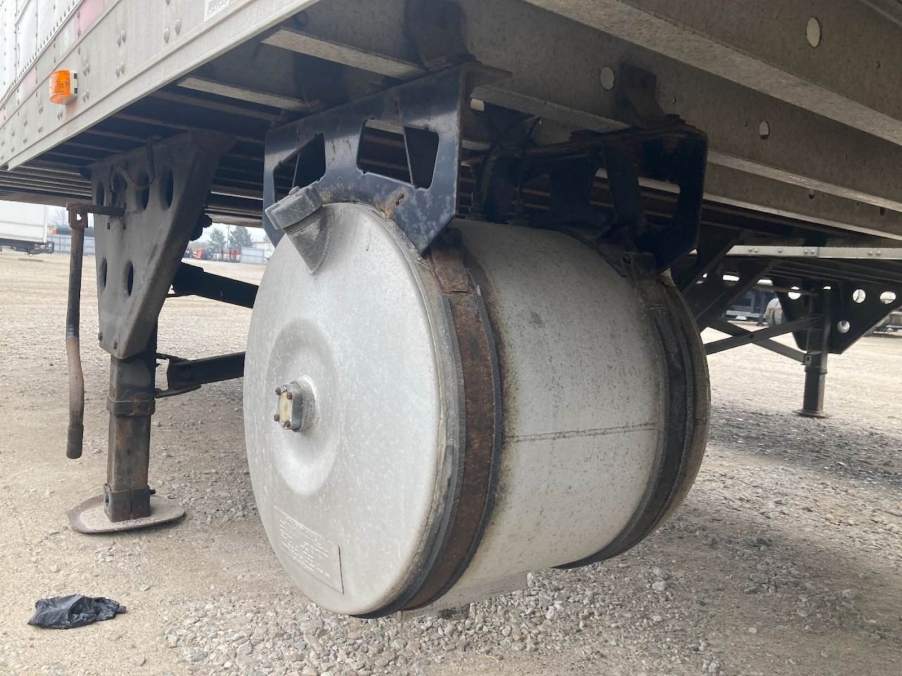
What’s the Big Silver Keg Hanging Beneath Some Semi Truck Trailers?
So you were driving next to a semi truck and noticed something odd beneath its trailer: a big silver tank hanging underneath the trailer box. No, it isn’t a keg the driver plans to tap at the next truck stop. It’s an auxiliary fuel tank, most likely powering the trailer’s refrigeration unit.
By the 1920s, trucks were crisscrossing the country with fresh food such as produce. But hot highway temperatures and long travel times limited how far folks could ship food. So the refrigeration truck was invented. It had its own generator and a refrigeration unit to cool the entire cargo area. The ice cream industry first shortened refrigeration truck to “reefer” truck and the nickname stuck.
Today, semi truck tractors crisscross the country towing refrigerated trailers of chilled and frozen food. Thanks in part to this network, you can enjoy oranges in North Dakota in February or lobster in Utah. But semi trucks represent a logistical issue. It’s important to the nimble trucking industry that a semi truck tractor can hook up to a variety of trailers and tow them. Therefore, “reefer” trailers need standalone refrigeration systems that don’t rely on the truck towing them.

A modern “reefer” trailer has a refrigeration unit in its nose. You can often see vents between the truck’s cab and the front of the trailer. It also has its own fuel source, usually a round silver tank hanging below the trailer. This tank is full of diesel fuel to power the generator which runs the refrigeration unit. This way, any truck can pull the trailer or even leave it at a loading dock for another truck to pick up later–and the food won’t spoil.
Does the semi truck tractor run off the same tank? Nope. The truck has its own tanks, sometimes also stainless steel, often hanging beneath the truck’s doors with built-in steps. These trucks sometimes burn as much as 6 mpg, so its no surprise that many can carry 120-150 gallons of diesel.



